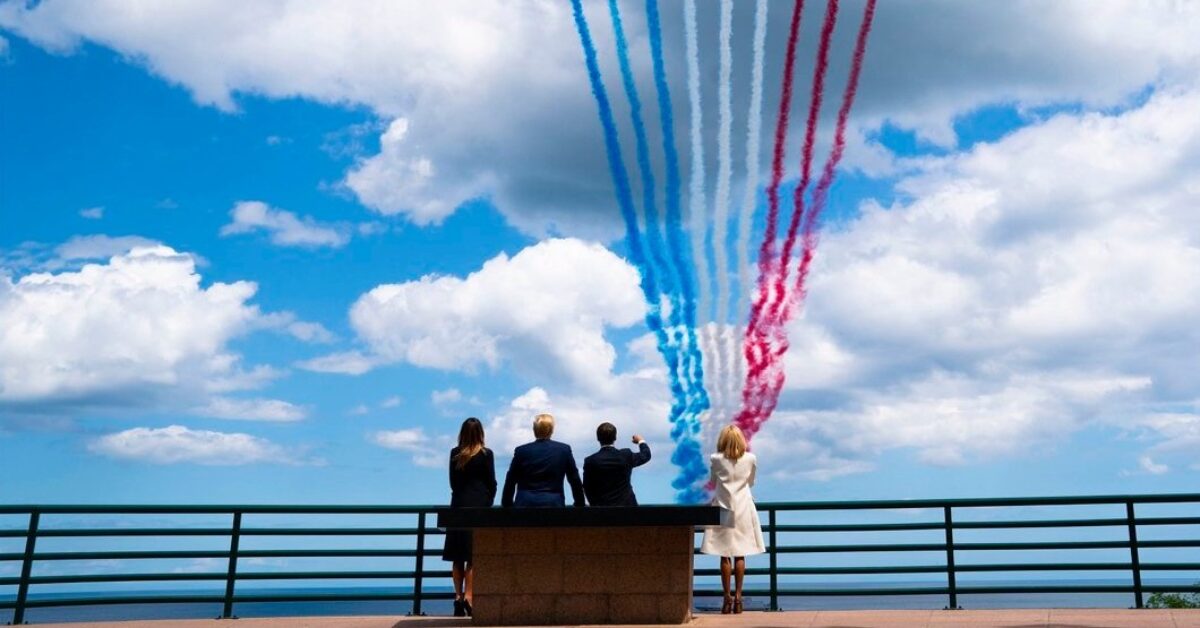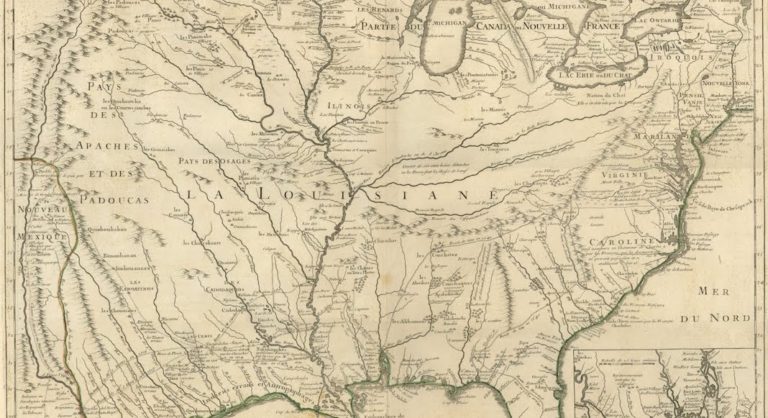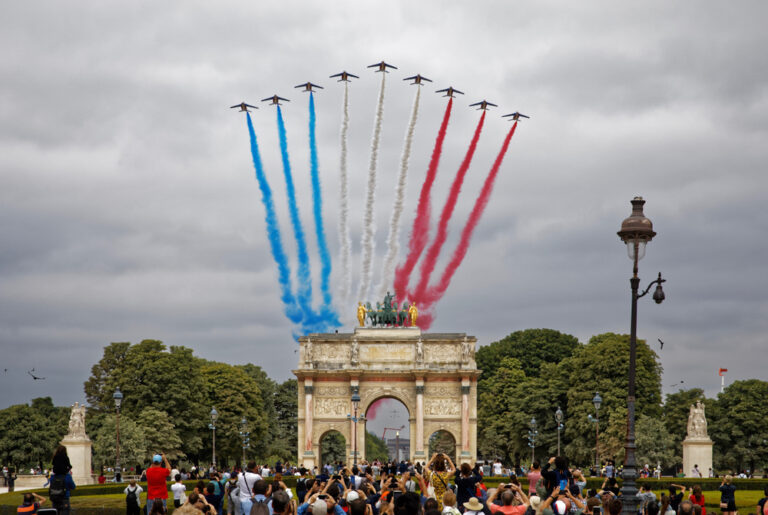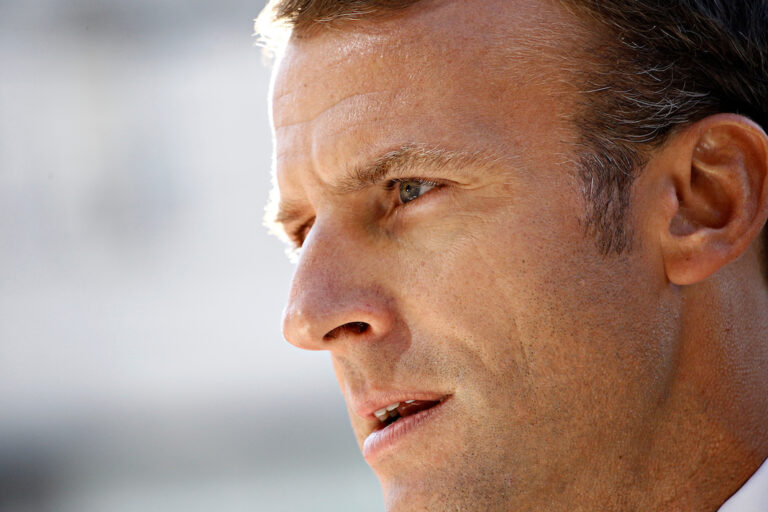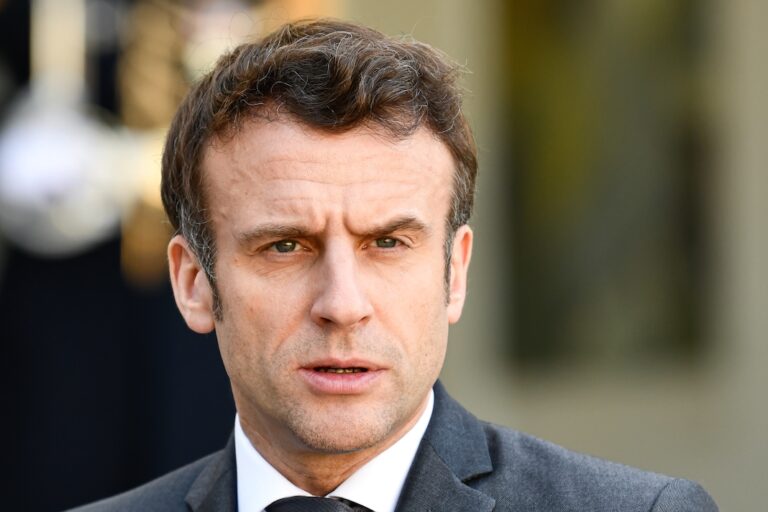Multilateralism versus patriotism: the French and American presidents delivered speeches with radically different tones at the Normandy American Cemetery and Memorial in Colleville-sur-Mer, France, on Thursday, June 6, during the ceremonies marking the 75th anniversary of the Allied landings.
Donald Trump may have boasted about his “outstanding” relations with Emmanuel Macron, but Emmanuel Macron was incisive in his references (read veiled criticisms) to American foreign policy. “We shall never cease to perpetuate the alliance of free peoples. That is what the victorious sides did, when they created the United Nations, the North Atlantic Treaty Organization. That is what a few years later the leaders of Europe did in bringing about the European Union,” he recalled, mentioning three coalitions Trump has criticized. “The lessons of Colleville-sur-Mer are clear: liberty and democracy are inseparable.” While praising bilateralism, Macron addressed Trump directly: “Mr. President of the United States, constantly renew this pact between the United States and France and freedom. I am ready, dear Donald Trump, the people of France are ready to share the friendship between our two nations that have contributed so much to the history of mankind.”
Likely alluding to the President’s favorite slogan, “Make American Great Again,” Macron had a few words of wisdom for Trump: “America, dear President Donald Trump, is never as great as when it fights for the freedom of others.”
June 6, 1944, has great significance for both France and the United States. Of the approximate 160,000 Allied troops that landed on beaches in northern France or parachuted behind German lines on D-Day, about 73,000 were American.
Macron directly addressed the American veterans, as well, in English: “We know what we owe to you veterans: our freedom. On behalf of my nation, I just want to say thank you.”
Trump delivered a speech in the form of a long, epic tale of the glory of the American nation and its citizens, interspersed with individual anecdotes and quotes from soldiers who survived the D-Day Landings. He turned to address the soldiers directly several times, even walking over to shake their hands.
He spoke of an “unbreakable” bond between France and the United States, “forged in the heat of battle, tested in the trials of war and proven in the blessings of peace.” “We will forever ever be together. Our people will forever be bold,” he said of the U.S. and France, near the closing of his words, without referring to the current prickly state of diplomatic relations between the two countries. Last November, he strongly criticized the French President’s proposal to create a European army, accusing the European Union of not paying its share of funding into NATO’s budget. He attacked Macron’s approval ratings, France’s unemployment, and called the French president “nationalist.”
Following the ceremony, the two heads of state held a joint press conference in Caen, which was heavily bombed during World War II. It was at this conference that foreign policy issues were discussed, including the issue of Iran. Trump reiterated his refusal to let Iran possess nuclear weapons and denied that he and Macron, who has advocated for upholding the Iran nuclear agreement, were divided on the issue. “[Macron] doesn’t want to see them having nuclear weapons, and I don’t want to see them having nuclear weapons,” Trump noted at the press conference. Macron emphasized the need for dialogue with Iran in order to achieve these goals.

